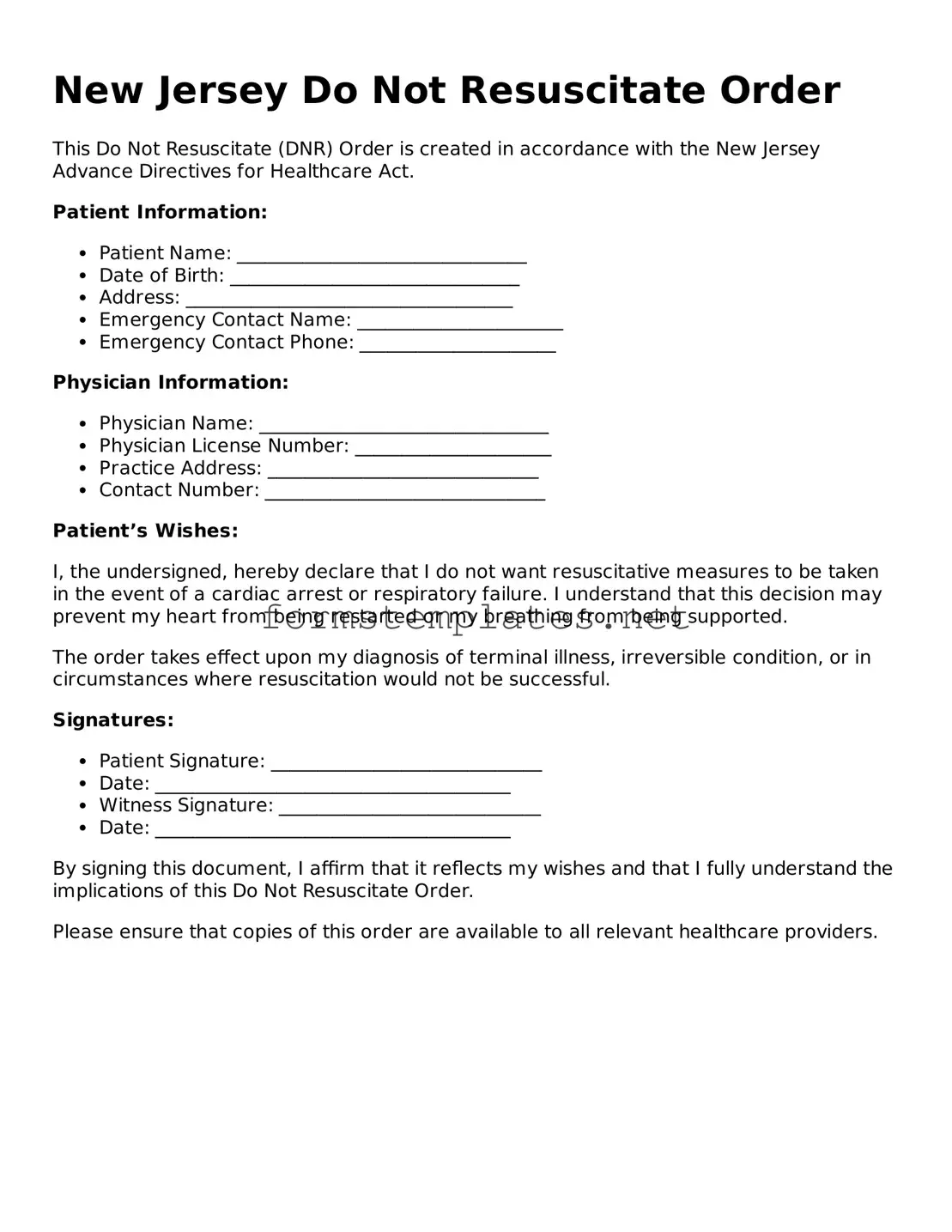What is a Do Not Resuscitate (DNR) Order in New Jersey?
A Do Not Resuscitate (DNR) Order is a legal document that instructs medical personnel not to perform cardiopulmonary resuscitation (CPR) if a person's heart stops beating or they stop breathing. In New Jersey, this order is intended for individuals who wish to avoid aggressive resuscitation efforts in the event of a medical emergency.
Who can request a DNR Order?
Typically, a DNR Order can be requested by individuals who are at least 18 years old and are capable of making their own medical decisions. In cases where a person is unable to make decisions, a legally authorized representative, such as a family member or guardian, may request a DNR on their behalf.
How do I obtain a DNR Order in New Jersey?
To obtain a DNR Order, you must complete the New Jersey DNR Order form. This form can be obtained from healthcare providers, hospitals, or online through state health department resources. After filling out the form, it needs to be signed by a physician, as well as the patient or their representative.
The DNR Order form requires several key pieces of information, including:
-
The patient’s name and date of birth.
-
The name of the physician who is signing the order.
-
A statement of the patient's wishes regarding resuscitation.
-
Signatures of the patient or their authorized representative and the physician.
Is a DNR Order valid in all healthcare settings?
Yes, a properly completed and signed DNR Order is generally valid in all healthcare settings in New Jersey, including hospitals, nursing homes, and at home. However, it is crucial to ensure that the DNR form is readily accessible to medical personnel when needed.
Can a DNR Order be revoked?
Yes, a DNR Order can be revoked at any time by the patient or their authorized representative. To revoke the order, the individual should inform their healthcare provider and ensure that the DNR form is removed from their medical records. It is also advisable to communicate this change to family members and caregivers.
What happens if a DNR Order is not honored?
If a DNR Order is not honored, it can lead to unwanted resuscitation efforts. In such cases, family members or the patient may have grounds for legal action against the healthcare providers involved. Therefore, it is essential to ensure that the DNR Order is clearly documented and communicated to all relevant parties.
Are there any limitations to a DNR Order?
While a DNR Order specifically addresses resuscitation efforts, it does not limit other medical treatments. Patients can still receive necessary medical care, including pain management and other supportive treatments. It's important to discuss these aspects with healthcare providers to ensure comprehensive care that aligns with the patient's wishes.
Can I create a DNR Order for someone else?
Yes, you can create a DNR Order for someone else if you are their legally authorized representative. This could be a family member or a designated healthcare proxy. It's essential to have open discussions with the individual about their wishes and ensure that the DNR form is filled out and signed correctly.
Where should I keep my DNR Order?
It’s crucial to keep your DNR Order in a place that is easily accessible. Many people choose to keep it in their medical records, with their healthcare provider, or at home where family members can find it quickly. Some individuals also carry a copy in their wallet or purse for emergency situations.

